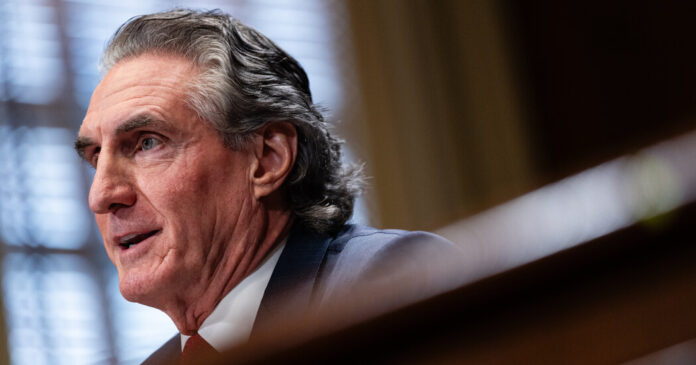“Doug Burgum Confirmed to Lead Interior Department: What This Means for Oil and Gas Policies”
On Thursday, Doug Burgum, a strong advocate for oil and gas, was confirmed by the Senate to lead the Interior Department. This confirmation puts him in charge of a vast amount of public land and offshore waters, as well as overseeing thousands of employees responsible for wildlife protection, national parks management, and tribal lands maintenance.
Mr. Burgum is expected to play a crucial role in implementing President Trump’s pro-drilling agenda, which aims to make it easier and cheaper for oil companies to operate while loosening protections for wildlife and easing limits on air and water pollution. Additionally, he will also head a White House council focused on promoting more oil and gas development, with the goal of selling American oil and gas to Europe and Asia.
During the presidential campaign, Mr. Burgum acted as a liaison between Mr. Trump and the oil and gas industry, organizing a dinner at Mar-a-Lago where Mr. Trump suggested industry leaders raise $1 billion for his campaign. Critics have raised concerns about Mr. Burgum’s close ties to oil billionaires, including Harold Hamm, the founder of Continental Resources.
While Republicans have expressed relief at the prospect of Mr. Burgum reversing Biden administration policies that aimed to reduce drilling and mining, Democrats have criticized his vision for increased fossil fuel extraction, citing concerns about exacerbating the climate crisis.
Mr. Burgum, a former Microsoft executive and two-term governor of North Dakota, views America’s public lands and waters as valuable assets with significant oil, gas, and mineral resources. He believes it is the country’s responsibility to extract these resources for the benefit of the American people.
Despite the United States already being the world’s leading oil producer and exporter of liquefied natural gas, Mr. Burgum insists that the country is facing an energy crisis. He advocates for an “all of the above” energy strategy but has expressed skepticism towards renewable energy projects, referring to them as “intermittent” power sources.
Emissions from fossil fuels produced on federal lands and waters contribute significantly to U.S. greenhouse gas emissions, highlighting the environmental impact of Mr. Burgum’s pro-drilling stance. His confirmation has sparked debate and criticism, with environmental advocates and some Democrats expressing concerns about the potential consequences of his policies on public lands and wildlife.
